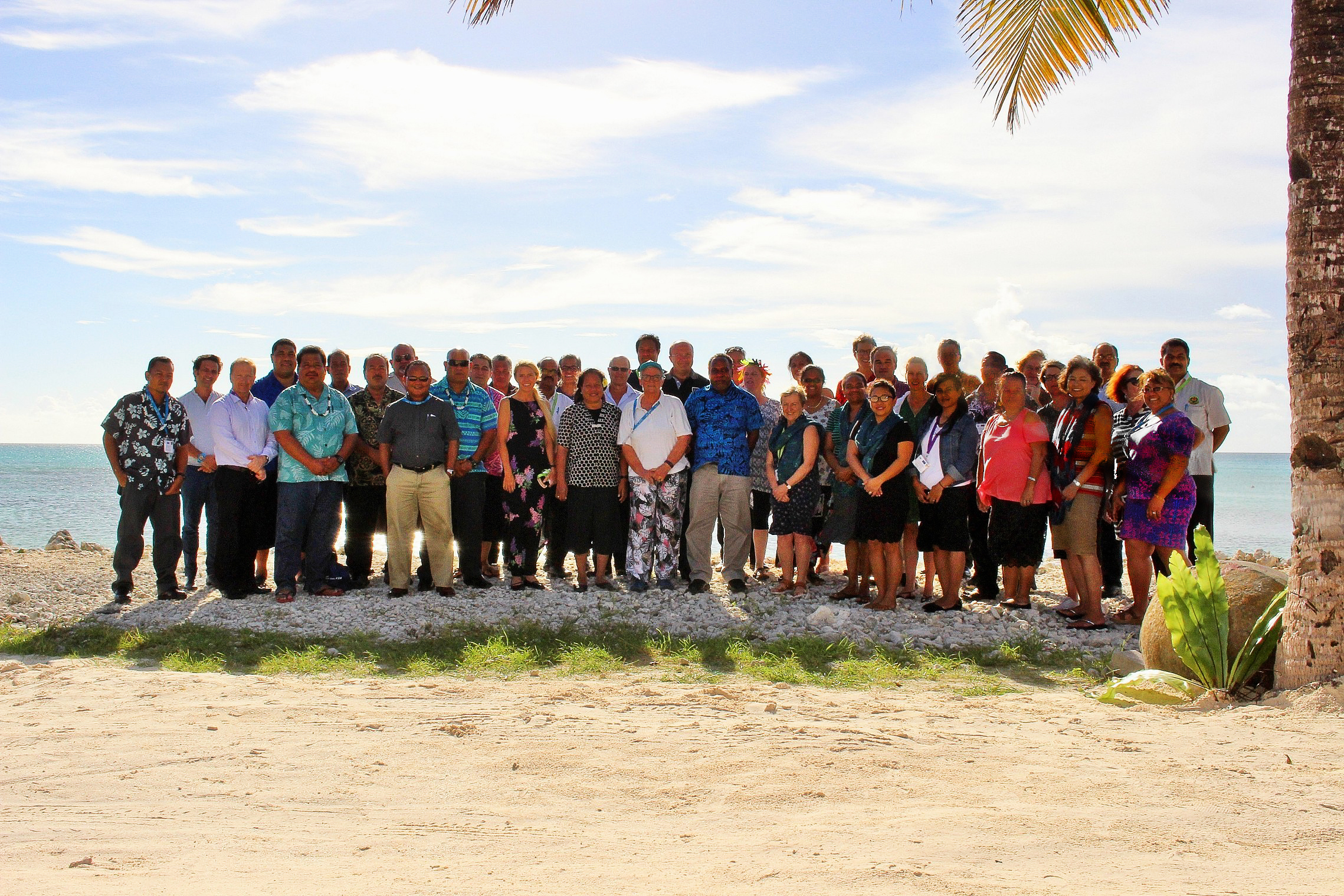The Pacific Association of Supreme Audit Institutions (PASAI) and INTOSAI Development Initiative (IDI) continued with phase II of the SAI Performance Measurement Framework (SAI PMF) project for Supreme Audit Institutions (SAIs) in the North Pacific by facilitating a workshop in Majuro, Marshall Islands from 2 - 6 October 2017. Twenty two staff from nine SAIs attended the workshop.
The Chief Secretary of the Republic of Marshall Islands, Mr Benjamin Graham, officially opened the workshop. In his opening remarks, he acknowledged the importance of SAIs taking stock of where they are and how they can continue to improve. He said, “This process of methodical self-assessment and continual self-improvement is common sense—but sadly not common practice among many organisations. By going through these performance assessments and peer reviews and diagnosing your deficiencies and areas for improvement, you are not only setting the bar high on your own performance, you are also setting an example for other public institutions to follow.” These comments echoed the core purpose of the SAI PMF tool and how SAIs can demonstrate the fundamental principle of SAIs leading by example.
SAIs from Guam, Marshall Islands, Federated States of Micronesia (FSM) Office of the National Public Auditor, FSM States of Pohnpei, Kosrae and Yap have been assessed through the peer review approach and the assessment reports are being finalised. The peer review teams were supported by resource persons from the region; they were Ms Claire Kelly, PASAI Performance Audit Consultant, Mr Allen Parker, Director of Audit for Cook Islands Audit Office, Mr Kelepi Makakaufaki, Deputy Auditor General of Tonga Office of the Auditor-General and Mr Marshall Maua, Director of Strategic, Personnel and Corporate Services of Samoa Audit Office.
The focus of the workshop was learning how to develop the qualitative evaluation, including identification of external and internal root causes of performance. Incorporating these external factors are crucial in explaining the SAI’s performance as these can either help or hamper the performance of the SAI. Each peer review team also presented and discussed lessons learned so far in the assessment, and preliminary high level results of their respective assessments.
The next steps in the programme are for the peer review teams to finalise the full report taking on board the lessons learnt from the workshop on integrated analysis and preparing a report that is evidence-based, balanced and easy to understand.
This programme is aligned with one of PASAI’s strategic goals requiring SAIs to develop a performance measurement framework to assist with improving the delivery of SAI’s audit responsibilities.
The workshop was facilitated by Ms Cecilie Thue-Hansen, Head of SAI PMF Unit within IDI and Mrs Sinaroseta Palamo-Iosefo, PASAI Director Practice Development.
This project is supported by the Australian Department of Foreign Affairs, INTOSAI Development Initiatives (IDI) and the New Zealand Ministry of Foreign Affairs and Trade.
For further information, contact:
Tiofilusi Tiueti, Chief Executive PASAI Secretariat
Email: tiofilusi.tiueti@pasai.org
Telephone: +64 9 304 1275
Website: www.pasai.org
Sinaroseta Palamo-Iosefo, Director Practice Development
Email: sina.iosefo@pasai.org
Telephone: +64 21 027 12717
Photo: Day 1 - Opening of workshop with Chief Secretary RMI, participants and co-ordinators











































